Corruption in Public Life:
Corruption is a deep-rooted menace that has eaten into the vitals of society, distorted all values, and made mincemeat of morality, truth, and virtue. The evil has grown to gigantic proportions and there is hardly any sphere of social, economic, political, and even religious activity that is free from graft, deception, and corruption of some kind. Like the air we breathe, it has become all-pervasive and entered every sphere of life. It is now regarded as a fact of life and evil that we have to live with. In fact, corruption has become so common that very few eyebrows are raised when we are informed of any case of blatant bribery. Trade, commerce, and industry, government, and private service, religion, and politics- no sphere are left untouched by corruption. It has infected even hospitals and educational institutions. The pity is that we indulge in corruption without any qualms of conscience. Sometimes one wonders whether the time has come to accept this menace as the price of socialism, progress, and civilization.
Edmund Burke warned the world that a corrupt influence is a personal spring of decay and disorder. It takes away vigor from our arms and wisdom from our councils. Once the evil of corruption is born, it grows very fast. Unfortunately, there was never anything devised by the wit of man which, in the course of time, has not been corrupted. At one time it was said that a corrupt society cannot survive long, but even this belief has proved a myth.
The opportunities for bribery and palm-greasing have increased greatly with the dawn of independence and the growth of democracy and industry, the system of licenses and permits for setting up enterprises, securing quotas of raw materials, imports, and exports, and the expansion of trade and commerce. The types of corruption have increased. The panorama is vast and baffling and beyond control.
The loud talks of anti-corruption measures, stringent laws, and deterrent sentences have no meaning. Occasionally there is a loud burst of resentment against corruption; it is condemned as cancer in society but there is again silence, the flush of enthusiasm fades away and life goes on in the same way. The focus of attention shifts to other more pressing problems of bread and butter, of inquiries and commissions, of majority and minority in Parliament and State Legislatures, of terrorism and communal hatred.
The philosophy of corruption operates interestingly. So long as there are people to offer bribe, there are also people to take it, directly or indirectly. We rationalise the situation and console ourselves that easy money is a human weakness difficult to overcome. The standard of living is constantly rising, soaring prices of essential commodities have broken the back and we indulge in corrupt ways for our children’s sake and since everyone else does it, why not us? Must we be the only angels on earth? Every man, it is said, has his price. When the entire economic and social setup breaths of what is called ‘speed money’ to push things through, it is almost impossible to resist temptation- human beings are, after all, human beings. But the stink lies not only in the prevalence of lure but in the hypocrisy that accompanies it. People accept bribes under the table, then come out to raise anti-corruption slogans at the top of their voices, and urge others to be honest and pure.
It is not difficult to locate the causes of corruption. Corruption breeds at the top and then gradually filters down to the lower levels. Gone are the days when people who joined politics were imbued with the spirit of serving the nation. Those who threw themselves into the fight for freedom knew that there were only sacrifices to be made and no return was expected. So only the most selfless people came forward. But the modern politicians are of an entirely different mold. They are not motivated by any lofty ideas. They win elections at a huge personal cost and then try to make the best of the opportunity they get. Powerful business magnates who are forced to give huge donations to political parties indulge in corrupt practices not only to make up for their losses but even to consolidate their gains. When people in power indulge in corruption so unabashedly, the common man gets a kind of sanction. Ironically instead of fighting against the menace of corruption our political leaders declare it a worldwide phenomenon and accept it as something inevitable.
Promises and oaths of honesty are soon made and forgotten. However, measures calculated to produce a social climate both among public servants and in the general public are essential. A new tradition of integrity can be established only if the example is set by those who have the ultimate responsibility for the governance of the society. The Prime Minister is trying hard to project a clean image. He has even designed a code of conduct for politicians in high positions to ensure the purity of their public image. Let us be honest and admit that our conduct and character lack that grace and strength which are the distinguishing marks of free people everywhere. We must submit to some serious introspection and realize the enormity of our weakness which is eating into our strength as a nation. Once we have realized this, it should not be difficult to end corruption at all levels of life. In fact, public apathy is an unconscious sanction of corruption.
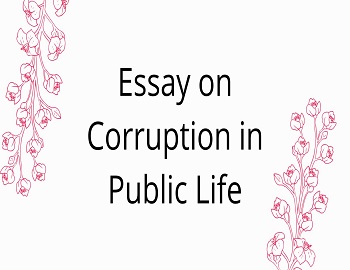
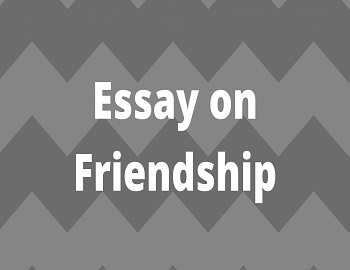

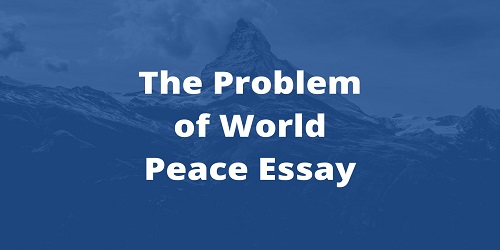
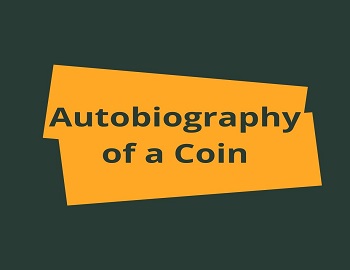

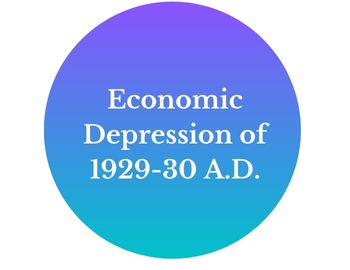
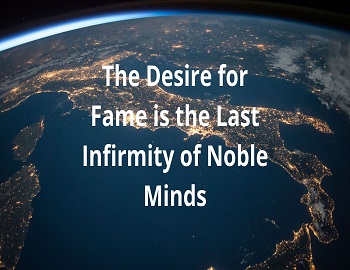
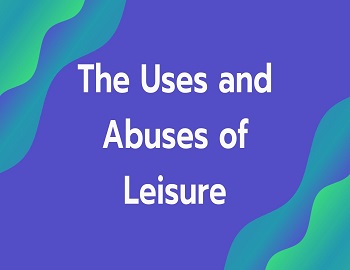
Comments (No)